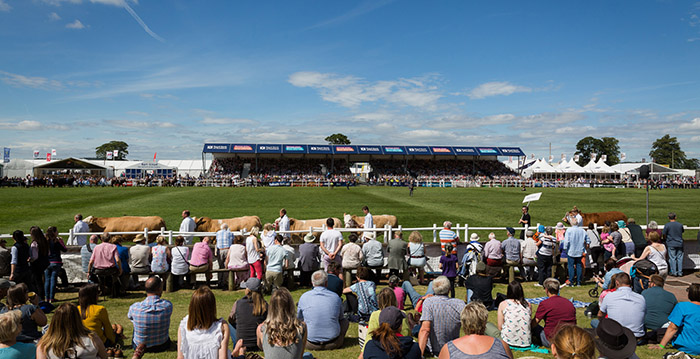The newly elected president of the Scottish Association of Meat Wholesalers (SAMW), Ian Bentley, has identified a ‘hit list’ of pressures needing to be addressed in the coming months, even as the Royal Highland Show celebrates the meat industry’s resilience.

2022 has been an exceptionally challenging year for meat producers; SAMW even likened the Scottish meat sector’s current struggles to those it faced during the foot-and-mouth outbreaks of 2001 and 2007, and the emergence of Bovine spongiform encephalopathy (BSE) in the 1980s.
Rising costs, continuing labour shortages and the pressures of net zero targets are at the forefront of issues needing to be dealt with, notes the SAMW, with the industry needing to band together to overcome such pressures.
“If ever we needed to work together as a whole-industry supply chain, then this is it,” states Mr Bentley. “By that I mean farmers, processors, retailers and government talking to each other and properly understanding each other.”
However, he added: “While each sector will obviously seek to look after its own, in the face of such a challenging period, there will be no prizes for allowing any one part of the supply chain to benefit at the expense of another.”
With that, Mr Bentley recognises that with the approach of the Royal Highland Show’s return, there is also much to celebrate in the meat industry, ‘not least the quality and provenance of Scotland’s iconic red meat’. Though he reiterates that the festivities cannot undermine ‘the spiralling operational costs, energy hikes, and supplies crisis facing all parts of the industry at present’.
Concerningly, he said that staffing pressures do not look as though they will be easing anytime soon, with SAMW member companies having already struggled through the past 18 months, to maintain staffing levels. The staffing issues have then caused raised labour costs, leaving processing margins depleted – an issue which has been exacerbated by the recent energy cost increases.
Mr Bentley affirms that processors “desperately need strong livestock supplies at one end and a rewarding retail chain at the other.” Though he appreciates that farmers need much the same to maintain their businesses: “They both need as much support and helpful pragmatic governance as possible.”
He also warns that attention must be paid to the big rises which are being applied to inspection costs, as well as the possible risks attached to the UK’s ‘light touch’ approach to import checks.
“While our members face highly complicated and costly export checks, meat imported into the UK enjoys unrestricted access to our market. This provides our competitors with a commercial advantage and leaves our livestock prey to major disease risks which could easily be avoided.”
“Hopefully, the return of the Royal Highland Show will enable us to ‘kick start’ a new round of meaningful discussions, geared toward addressing the enormous challenges that lie ahead. Despite these challenges, however, we believe firmly in the future of Scottish red meat and desperately want to maximise the industry’s potential,” Mr Bentley concluded.




